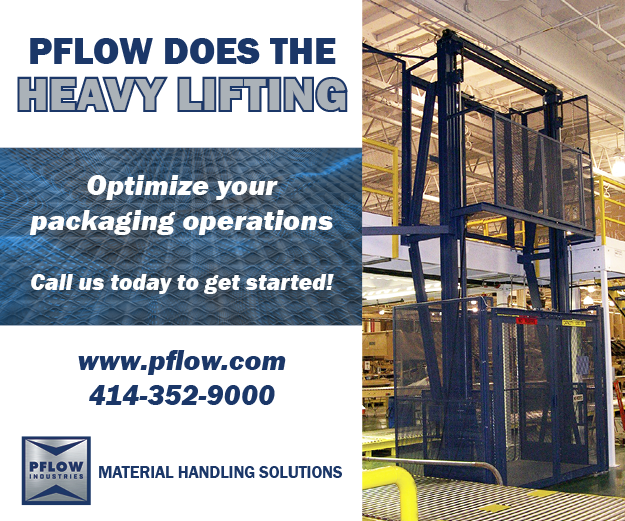Optimizing Case and Tray Packing Flexibility in the Tissue and Nonwovens Industry
By Edson
 The need for flexibility in case packing in the tissue and nonwovens industry has never been greater. Consumers are demanding more choices in paper towels, hygienic tissue paper, diapers, incontinence products, facial tissue, toilet paper and wet wipes. Wet-wipe consumption overall – including cleaning cloths, baby wipes, and feminine hygiene and cosmetic wipes – has nearly tripled in the past decade and shows no signs of slowing down, according to Smithers Pira, the worldwide authority on the packaging, paper and print industry supply chains. The appeal of these products comes from the advantages they offer consumers in effectiveness, cleanliness, convenience and ease of use.
The need for flexibility in case packing in the tissue and nonwovens industry has never been greater. Consumers are demanding more choices in paper towels, hygienic tissue paper, diapers, incontinence products, facial tissue, toilet paper and wet wipes. Wet-wipe consumption overall – including cleaning cloths, baby wipes, and feminine hygiene and cosmetic wipes – has nearly tripled in the past decade and shows no signs of slowing down, according to Smithers Pira, the worldwide authority on the packaging, paper and print industry supply chains. The appeal of these products comes from the advantages they offer consumers in effectiveness, cleanliness, convenience and ease of use.
Supporting this consumer demand is the increase in variations of packaging sizes, such as 4-packs, 12-packs, brick-packs and multi-packs, and smaller-sized secondary packaging for eCommerce orders, which continue to show significant growth in the tissue and nonwovens segment. These inherent changes in packaging requirements necessitate highly-flexible systems to facilitate quick changeovers and just-in-time orders. This flexibility can be derived from implementing the right automation to support the fluidity that such throughput requires.
Case and Tray Packing
One of these automated systems is corrugated case and tray packing – essentially, case erecting, packing and sealing – which plays a pivotal role connecting upstream manufacturing and primary packaging within the tissue and nonwovens industry with downstream warehousing and distribution.
Instead of a plant utilizing multiple, dedicated machines for handling various-size case packing requirements, the benefits of operating a singular automated and fully-integrated machine capable of handling a variety of case sizes with quick changeovers between product runs, would present a considerable optimization of the case-packing process.
Latest Evolution of Case Packers
With the latest evolution of case packers, these capabilities have now been realized. An excellent example of these latest systems is the 3600 Series of case and tray packers from Edson, a leading manufacturer of secondary packaging equipment for the tissue and nonwovens industry. With a focus on throughput speed and flexibility to handle multiple sizes of boxes with quick changeovers, the 3600 Series warrants taking a closer look at its processes and functionality.
Process Operation
The Edson 3600 Series is a fully-automated, intermittent-motion system, handling large case and tray packing for tissue and nonwovens, with a seven-station process:
- Packer Station – the product is correlated and lifted up to the case for packing.
- Magazine Station – one K.D.F. is separated from the stack.
- Case Former Station – the case is formed.
- Case Loading Station – the case is loaded with the product.
- Glue Station – glue is applied to the case as it passes by the glue guns.
- Compression Station – the case is compressed to seal the flaps shut.
The 3600 can reach maximum throughput rates of 20 large cases per minute, among the fastest throughput rates for large-case case packing machines in the tissue and nonwovens industry. In addition to large case sizes 24″ x 24″ x 24″, these systems can run sizes to 6″ x 6″ x 6″.
Tray packing is an optional add-on, but fully integrates into the 3600, for inserting standard 2″ – 3″ high corrugated trays, tower packs and displays.
Changeovers, Simple and Fast
It is fairly typical for changeovers with case packers to take a good hour to perform, 30 minutes to make the physical changeover and another 30 minutes to tweak the settings, and in some cases the machine may need to be shut down to get the settings running right.
This latest-evolution 3600 Series machine has implemented technology to simplify and speed up the changeover process. Through the machine’s touchscreen HMI, the changeover can be effected by selecting from a dropdown menu the pre-loaded recipe configuration for a specific carton format. Eighteen servo-motors will automatically change the machine over to ready itself for the indicated package size.
The operator is required to make several part changes, as well, but the change parts are RFID encoded, so that the machine recognizes that the proper change parts are in place. The case packer will not run if the wrong parts have been installed.
The bottom line with these new changeover technologies is the time reduction, from about one hour per changeover to under 15 minutes. This has a considerable impact on maintaining product throughput and optimizing labor hours.
High-Speed Case Packing for eCommerce
Because consumer eCommerce orders are smaller in quantity – 20 or 30 diapers, or a dozen boxes of facial tissue per order – the secondary packaging cartons are smaller. This drives up the throughput rate of the case packer because less product is being put into each carton. The growing requirements of eCommerce have pushed the development of case packers beyond the throughput capabilities of the 3600 Series.
Edson developed the 3600 HS (High-Speed) case packer to achieve a rate of 26 cases per minute, specifically for eCommerce orders. But the machine is equally at home producing these throughput volumes with large cases, making it the fastest large-case throughput case packer in the tissue and nonwovens industry.
The machine maintains all of the process operations and changeover capabilities as its legacy case packer, the 3600 Series, but with additional controls added to the machine’s case handling functions to speed throughput.
Compact Case Packing for Away-from-Home Tissue Products
Among the most widely used commodities in the world, away-from-home tissue products are in increasing demand by institutional and hospitality markets. Because these tissue products are more dense per unit volume compared to their consumer counterparts, the packing machinery runs slower.
One of the latest technologically-advanced case packing entries into the away-from-home tissue market – the Edson 3600 C Series – is also the most compact with the smallest footprint. The 3600C packs rolled tissue, facial tissue, hand towel, and folded napkins for away-from-home industrial and commercial customers. It can also be used to pack cases of diapers and feminine hygiene products.
With the basic functionality of the 3600 Series, this full-automated, intermittent-motion case packer achieves its small footprint by doing the flap tucking at the loading station. Here is a rundown of its five-station process:
- Packer Station – the product is correlated and lifted up to the case for packing.
- Magazine Station – one K.D.F. is separated from the stack.
- Case Former Station – the case is formed.
- Case Loading & Flap Tucking Station – the case is loaded with the product, and minor flaps are closed.
- Sealing Station – glue is applied to the case and compressed for sealing.
Despite its compact size, this case packer has the changeover capabilities and flexibility to handle large- and varied-sized cases, similar to its parent 3600 Series machine, but topping out at 15 cases per minute throughput. Its streamlined footprint allows for easier integration into existing lines with limited space.
Evolving Technology to Support Tissue and Nonwovens Manufacturing
As the tissue and nonwovens industry continues to evolve to meet the needs of consumers, so will technology be adapted to improve production throughput and cost efficiency. Case packing will always be an integral part of this industry’s manufacturing line, and will continue to rise to the challenges to integrate the latest technology into its processes.
For more information, visit www.edson.com.







